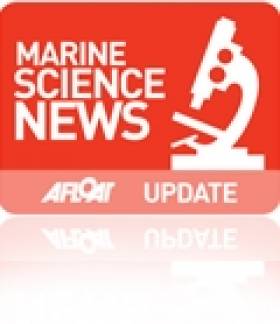Displaying items by tag: John Holland
Research Vessel on Hydrographic Survey Calls to Dun Laoghaire
RV Celtic Voyager is an inshore RV and she can accommodate 6 - 8 scientists with a maximum endurance of 14 days. According to her intensive survey schedule she is currently conducting hydography work for this month entirely. To read her complete survey programme click HERE.
In 2002 she was joined by a second though considerably larger vessel the 65m RV Celtic Explorer, which is six times larger than her fleetmate in terms of tonnage, which is 2,425grt. Apart from all the scientific and deck machinery she can also handle seven 20-foot containerised laboratories.She has accommodates for 35 personnel, including 19-21 scientists and has an endurance window of 30 days.
The vessel was also built by the same Dutch shipyard and both are owned by the Marine Institute. Ship management of the Galway based pair is provided by P&O Maritime Services (Ireland) Ltd.
In addition the ROV Holland I a deepwater Remotely Operated Vehicle is operated on board the RV Celtic Explorer. The ROV is named after John Phillip Holland from Liscannor, Co. Clare who was an early inventor and builder of submarines. For more information about the ROV which forms as part of tonight's 'Sea2Sky' event in Salthill, Galway, as previously reported on Afloat.ie click HERE.
Today is European Researchers Night, where the ROV will be on display in Galway
- Marine Institute
- Dublin Bay News
- Ports and Shipping
- Ports and Shipping News
- ROV Holland I
- Dun Laoghaire News
- Marine Science News
- Dun Laoghaire Harbour News
- Marine Instistute Research vessels
- Damen B.V. Shipyard
- P&O Maritime Services Ltd
- Submarine inventor John Philip Holland
- John Holland
- Irish research vessels





























































